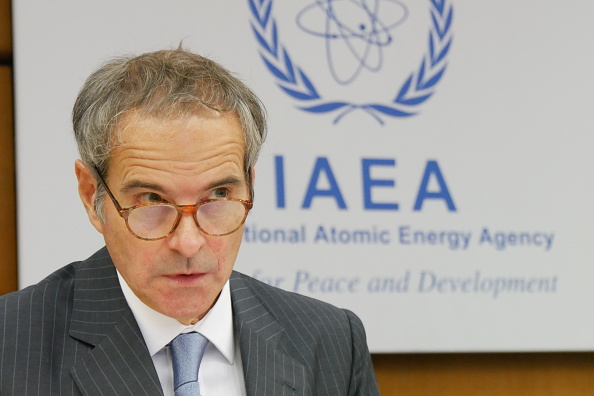Politics
Iran Accelerates Cleanup at Mojdeh Site After Israeli Strikes

Recent satellite imagery indicates that Iran is making significant efforts to demolish buildings at the Mojdeh site, likely in an attempt to eliminate evidence of nuclear weapons research. According to the Institute for Science and International Security, this rapid cleanup follows Israeli airstrikes that targeted the site on June 18, 2023, during a larger military operation across Iran.
The Institute for Science and International Security, an independent research group led by former UN nuclear inspector David Albright, notes that the demolitions appear aimed at sanitizing the site from any incriminating evidence related to nuclear activities. The Iranian government has consistently denied any intentions of developing nuclear weapons, insisting that its nuclear program serves peaceful purposes.
International Response and Ongoing Inspections
The report on the Mojdeh site emerges as the International Atomic Energy Agency (IAEA) is engaged in discussions in Tehran to resume inspections that were disrupted during the recent conflict between Israel and Iran. These discussions follow the US strikes on June 22, which targeted Iran’s three primary nuclear facilities.
As tensions escalate, Britain, France, and Germany are reportedly initiating the process of re-imposing UN sanctions on Iran for violating the 2015 nuclear deal. This agreement was designed to prevent Iran from advancing its nuclear capabilities. Four diplomats confirmed that sanctions could begin as early as today.
Rafael Grossi, the head of the IAEA, stated during a press conference that Iran is obligated to allow inspections to resume and emphasized the urgency of conducting these checks. He mentioned the need to visit all relevant sites, including the main nuclear facilities at Fordow, Natanz, and Isfahan, to account for Iran’s stockpile of over 400 kg (approximately 882 pounds) of uranium enriched to near weapons-grade purity.
Details of the Strikes on Mojdeh
The Israeli strikes on the Mojdeh site damaged multiple structures associated with nuclear research. Notably, one building was linked to the Institute of Applied Physics, while another was suspected of involving the Shahid Karimi Group, which the US has sanctioned for its missile and explosives-related projects. This group is considered a successor to the AMAD Plan, a program for nuclear weapons development that was reportedly halted in 2003.
Satellite images from June 20 revealed substantial destruction at the site, including the destruction of the Institute of Applied Physics building, damage to a security facility, and the obliteration of a workshop. A subsequent image from July 3 showed that cleanup efforts had already begun, with debris being cleared away.
By August 19, satellite imagery confirmed that the Applied Physics building and the workshop had been completely demolished, as well as the structure linked to the Shahid Karimi Group. The swift actions taken by Iran to clear these sites raise concerns about the potential removal of evidence related to nuclear weapons activities.
The ongoing developments at the Mojdeh site underscore the complexities surrounding Iran’s nuclear program and the international community’s response. As discussions continue regarding inspections and compliance with nuclear agreements, the implications of Iran’s actions remain a focal point for geopolitical tensions in the region.
-

 World4 months ago
World4 months agoTest Your Knowledge: Take the Herald’s Afternoon Quiz Today
-

 Sports4 months ago
Sports4 months agoPM Faces Backlash from Fans During Netball Trophy Ceremony
-

 Lifestyle4 months ago
Lifestyle4 months agoDunedin Designers Win Top Award at Hokonui Fashion Event
-

 Entertainment4 months ago
Entertainment4 months agoExperience the Excitement of ‘Chief of War’ in Oʻahu
-

 Sports4 months ago
Sports4 months agoLiam Lawson Launches New Era for Racing Bulls with Strong Start
-

 World5 months ago
World5 months agoCoalition Forms to Preserve Māori Wards in Hawke’s Bay
-

 Health4 months ago
Health4 months agoWalking Faster Offers Major Health Benefits for Older Adults
-

 Lifestyle4 months ago
Lifestyle4 months agoDisney Fan Reveals Dress Code Tips for Park Visitors
-

 Politics4 months ago
Politics4 months agoScots Rally with Humor and Music to Protest Trump’s Visit
-

 Top Stories5 months ago
Top Stories5 months agoUK and India Finalize Trade Deal to Boost Economic Ties
-

 Health2 months ago
Health2 months agoRadio Host Jay-Jay Feeney’s Partner Secures Visa to Stay in NZ
-

 World5 months ago
World5 months agoHuntly Begins Water Pipe Flushing to Resolve Brown Water Issue









